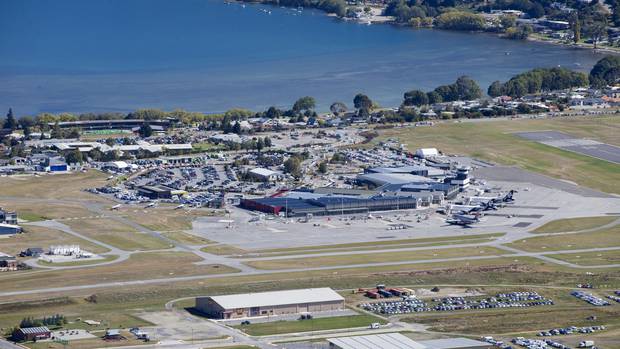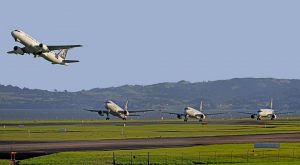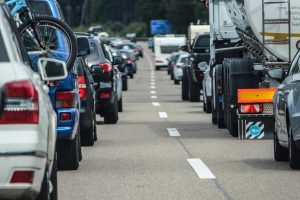By Tim Hazeldine –
Queenstown is crowded right now, crowded with stranded travellers unable to get home. As of last Friday, every single seat on every single flight to Auckland was sold out, for all this week, on both airlines.
For some Aucklanders forced to delay their departure from the Lakes District, an added compensation will be missing a few days of commuting to work on our congested motorways and arterial roads.
Congestion is the name of the game in both cases here: over-crowded roads and over-crowded tourist resorts. And, congestion is a particularly nasty business because it generates what economists call externalities – effects on third parties which aren’t priced in to the decisions that cause the problems.
If I squeeze my way on to an already crowded motorway, my car will reduce the travel speeds of all the cars behind me. That’s not priced in to my decision. Overseas tourists crowding in to our limited supply of natural assets — bush walks, ski fields, whatever — push up the price for locals, but no compensation is paid.
Basically, the free market can’t deal efficiently with these external effects: some public policy intervention is needed.
What sort of policies? Well, there is actually some pretty low-hanging fruit waiting to be picked here. If you did manage to scramble a seat out of Queenstown this week (I did), it will have cost you $370. But if you wanted to travel at the end of March, there were $79 fares available.
If you would just hop onto the motorway in Auckland at 9.30am instead of 8.30am, well, you’ll probably get a clear run. So, if we could smooth out the peaks and troughs, we would alleviate congestion costs and make more efficient use of our roads, airplanes and tourist attractions.
How to do this? We’ve known the answer for a long time: impose variable congestion charges, to give people an incentive to find ways of moving their activities into off-peak periods. Alex Duncan wrote an excellent Opinion piece in the Herald last week explaining how road congestion charging can work for Auckland, with low transaction costs using modern information technologies.
What about tourism congestion? I think we need to get serious about this. We should levy a substantial tax on non-New Zealand residents flying into the country at peak periods.
How substantial? I haven’t yet done the figures on this, but I would not be surprised if the appropriate number was at least $250 per person, this reducing, perhaps to zero, for off-peak arrivals.
I repeat: this is not to punish visitors or even to fleece them, but just to price-in the actual external costs imposed on New Zealand residents by people piling in to our rather finite little country when it is already crowded.
What to do with the revenues raised? Here economists tend to part company with their fellow citizens. There is strong tendency to try to sell congestion charges politically by promising to spend the money on related “infrastructure” – more buses, more loos for freedom campers, whatever.
I’d say this is woolly thinking. Money is money is money – it doesn’t come with tags on it indicating how it should be spent. Put it another way: if the benefits of, say, better bus services, exceed the costs, then we should improve the bus services, regardless (though noting that congestion charging will bump up those benefits, and make such investments more attractive).
As an economist I recommend making congestion charges fiscally neutral. In the case of commuting charges, an equitable and efficient way of doing this would be to distribute the revenues as a rebate on the rates paid by all home owners and landlords in Auckland – thus, not just benefiting those who use the roads in peak periods, but also the much larger numbers who don’t, and who thereby are doing their bit to alleviate congestion by not travelling at peak – perhaps working at home or living near their jobs or walking or cycling into town.
What about disposing of the border levies on inbound travellers? Again, I’d argue against ear-marking it on building more “infrastructure”, this then to be distributed freely to tourists.
It would be nice if we had to spend less on infrastructure. Perhaps we could achieve this if we manage the demand rationally. But what to do with the money? Well, if a gesture is required, perhaps use it to take half a per cent off the GST, thereby benefiting all New Zealanders, whether or not they want to travel to Queenstown.
*Republished with permission from the New Zealand Herald. Originally published 20 February 2018. Featured photo: Mike Scott.
• Tim Hazledine is a professor of Economics at the University of Auckland Business School, and teaches in the Master of Public Policy.



